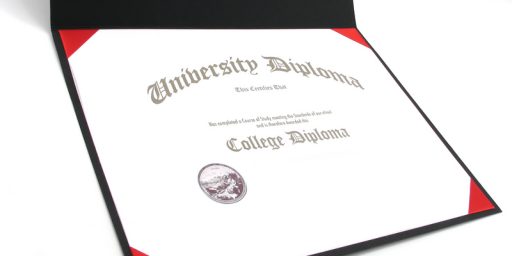Hawks and Tree Huggers Unite Against SUVs
The Washington Post fronts their Business section with news of an alliance between environmentalists and conservative Republicans on ridding America’s independence on Middle Eastern oil.
An Unlikely Meeting Of the Minds
Environmentalists aren’t the only ones applauding the sales stumble of big SUVs and pickups in the face of high gas prices. Groups of conservative Republicans see an opportunity to step up a campaign to promote alternative-fuel vehicles and wean the nation from dependence on foreign oil. While skeptical about links between autos and global warming, the conservatives have concluded that cutting gasoline consumption is a matter of national security.
A who’s who of right-leaning military hawks — including former CIA director R. James Woolsey and Iraq war advocate Frank J. Gaffney Jr. — has joined with environmental advocates such as the Natural Resources Defense Council to lobby Congress to spend $12 billion to cut oil use in half by 2025. The alliance highlights how popular sentiment is turning against the no-worries gas-guzzling culture of the past decade and how alternative technologies such as gas-electric hybrids are finding increasingly widespread support. “I think there are a number of things converging,” said Gary L. Bauer, a former Republican presidential candidate and former head of the Family Research Council who has signed on to a strange-bedfellows coalition of conservatives and environmentalists called Set America Free. “I just think reasonable people are more inclined right now to start thinking about ways our country’s future isn’t dependent on . . . oil from a region where there are a lot of very bad actors.”
[…]
At the same time, the success of the Toyota Prius and the Ford Escape Hybrid has demonstrated that drivers don’t have to sacrifice fun, performance or status to achieve better gas mileage. The Civil Society survey of more than 1,000 people — evenly divided between men and women — found that nearly two-thirds worry that Japanese and other foreign automakers are pulling ahead of their U.S. counterparts in alternative-fuel technology. Such fears are changing many long-standing positions on the issue of fuel economy. While Democrats have rallied against America’s oil dependence — Sen. John F. Kerry (Mass.) termed the issue a national emergency during last year’s presidential campaign — Republicans have been more likely to advocate further exploration for oil reserves than to sound the alarm about the need for new technologies.
On Monday, 31 national security experts wrote to President Bush on behalf of the Energy Future Coalition, a nonpartisan think tank founded in 2001, calling for action to urge industry to develop alternative-fuel vehicles. The group included prominent Republicans — such as Robert C. McFarlane, President Ronald Reagan’s national security adviser, and C. Boyden Gray, White House counsel for President George H.W. Bush — as well as Democrats, including former Colorado Sen. Gary Hart.
There’s little doubt that energy independence, let alone a cleaner environment, would be a good thing. This issue is all about trade-offs. Democrats predominate in urban areas where long commute times, heavy traffic congestion, and the feasibility of public transportation are all present. Republicans, conversely, are more concentrated in areas where the automobile is a necessity of everyday life.
Switching to an alternative fuel source makes sense if we can do so without sacrificing mobility and the independence it brings. We appear to be reaching the point where that’s possible very rapidly.
The security angle is a bit trickier:
[Frank] Gaffney, who runs the Center for Security Policy think tank, said he had something of an epiphany on the issue last year after attending a conference on the outlook for Saudi Arabian oil reserves. A longtime advocate of nuclear energy and ballistic missile defense, and a member of the neo-conservative movement that pushed for the overthrow of Saddam Hussein, Gaffney said he realized it’s no longer tenable to send billions of dollars in oil proceeds to the Middle East. “It’s a recipe for disaster,” he said. “Most of the places we import from have regimes that are at best unstable and at worst openly hostile to the United States. . . . What are we doing giving all this money to the people who are trying to kill us?”
The emergence of China as an industrial powerhouse is compounding the problem, he said, creating a huge rival to the United States for the world’s dwindling oil reserves. “We have a national security emergency on our hands,” Gaffney said.
These things have been true for decades, though. The Arabs had a massive oil embargo in 1973 that rudely awakened us, for a time, to the power they had. Of course, being a single commodity economy has its price, too, as withholding the only thing of value the society produces is a dual edged sword.






The problem now, vis a vis oil is–unlike the oil embargo of the 70s–global demand is what is pushing up the prices rather than a politicized restriction of supply.
Unfortnately, oil is not a renewable resource and we are not finding new reserves at a rate that meets increasing demand. Hell, even the Arctic Nat. Wildlife Refuge, according to Gail Norton, only has enough oil to meet current levels for about a year and a half before it is exhausted.
Currenly, we spend about 42% of our oil consumption on transportation–the largest single sector. Reform in this area of policy could be significant, but, unfortunately we have no political leadership on national transportation ( and land use) policy.
Of course domestic drilling would be a move in that direction, too. But of course the move they chose is against the EVIL SUV….
What a load of cow poop.
All these new coalitions wanting to save America from it’s dependence on foreign oil are just another bunch of elitists talking to themselves instead of the public.
I would like you to look at http://www.joinfoil,org.
The answer is putting politicians feet to the fire and getting answers from them to tough questions.
Almost exactly a year agao I was T-boned while driving a GEO Metro. Multiple life saving surgeries, weeks in the hopital, lame for life. I am now driving a SUV and will continue to do so if gas goes to $10. There’s always a trade-off. I drove the GEO for 150,000 miles. I did my bit. It nearly killed me.
Running out of oil is a crock. People have been saying the world’s reserves are dwindling since the 70s. What happens, they either find more oil or, the deposits already found have far more oil than previously thought. The political will to explore locally and build more refineries is more important than catering to the Chicken Littles (Regardless of their other qualifications) of the world.
You cannot overstate the impact that a shift in necon opinion on oil dependency would have. Why shouldn’t the United States take the lead and throw its unmatched R&D resources into getting out of the oil trap? The strategic benefits, never mind the economic, political and environmental, are so obvious and overwhelming. Can anyone make a good case about why the status quo is so great?
US dollars spent on gas helped create Saudi oil wealth that financed madrassas across the Middle East that produce al-Qaeda’s ground troops. I’m a bloody neocon and I can see that. Why on Earth wouldn’t you want to do everthing possible to change the status quo?